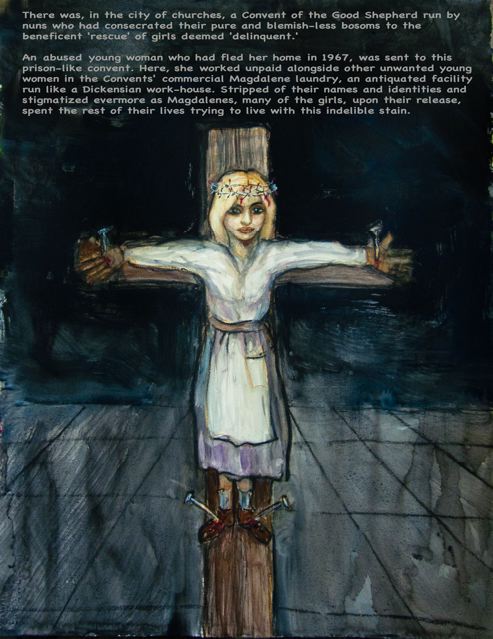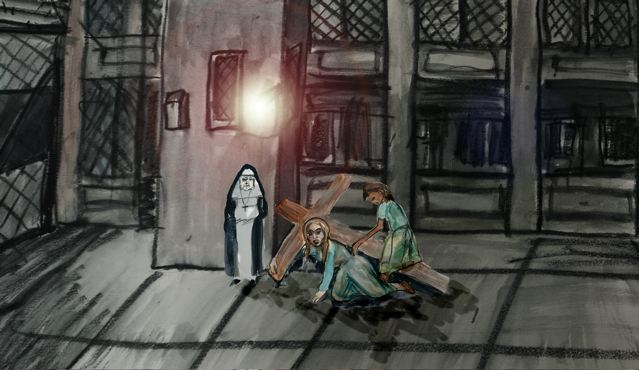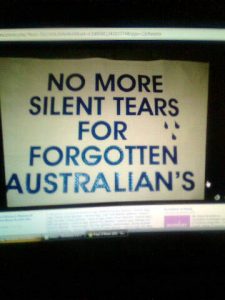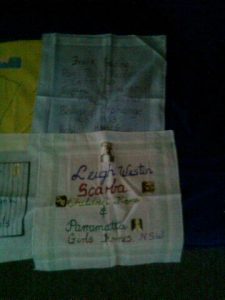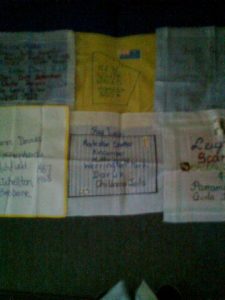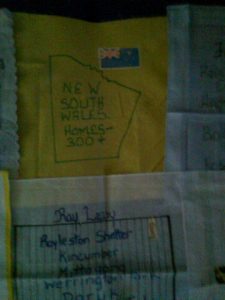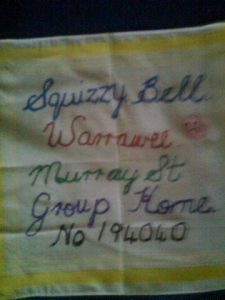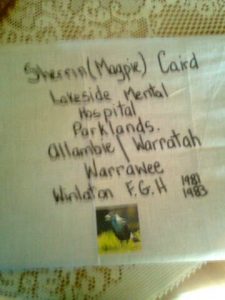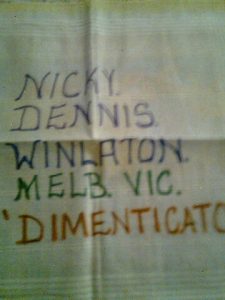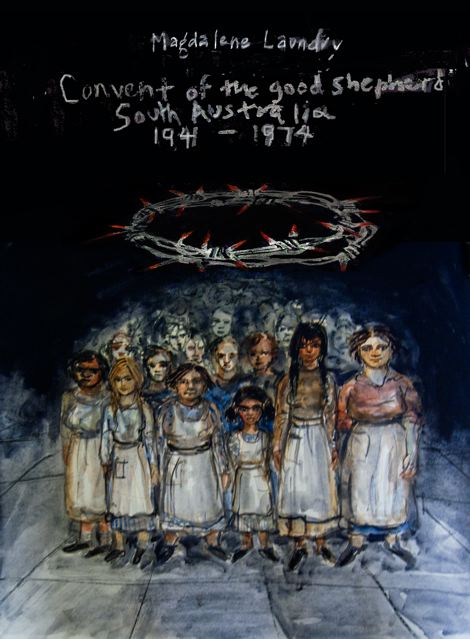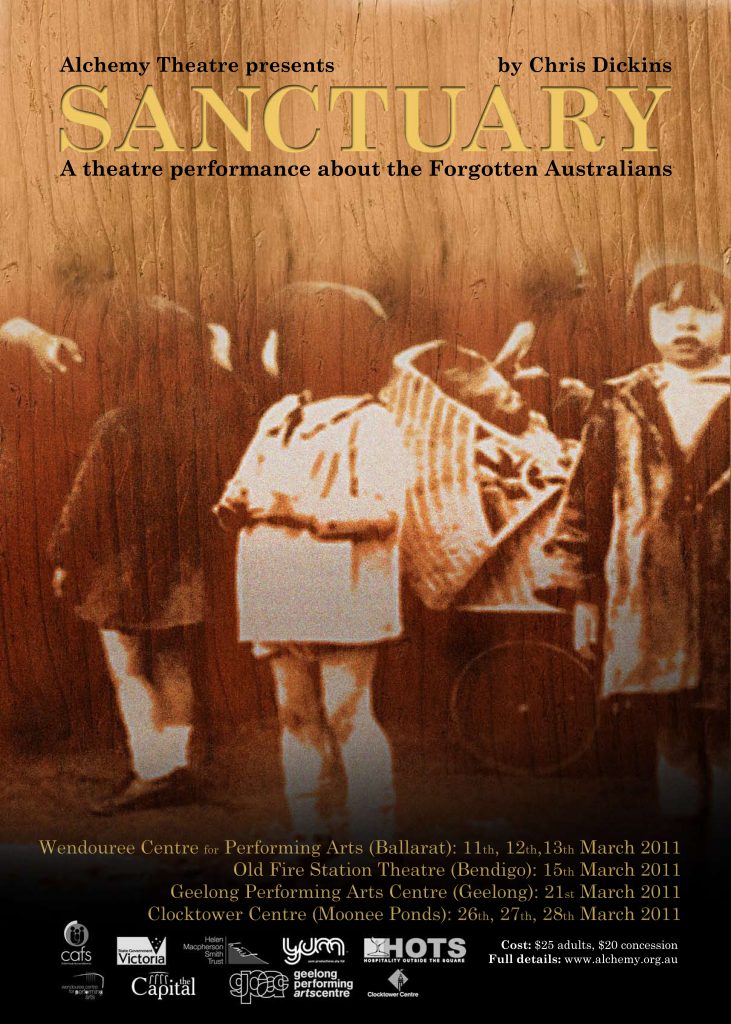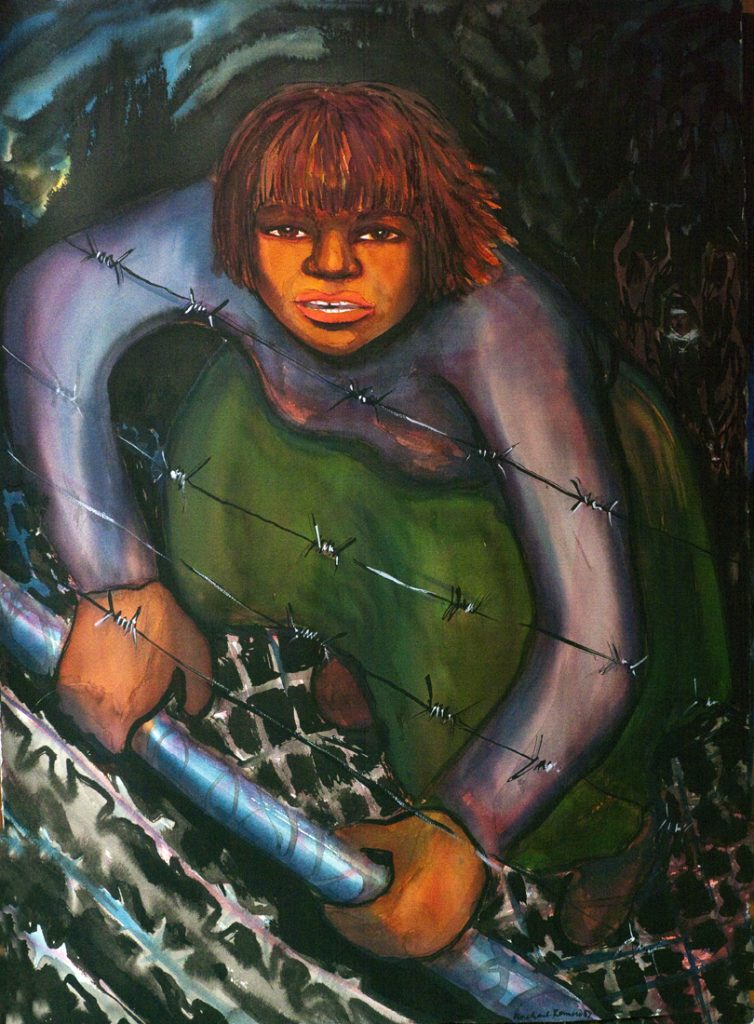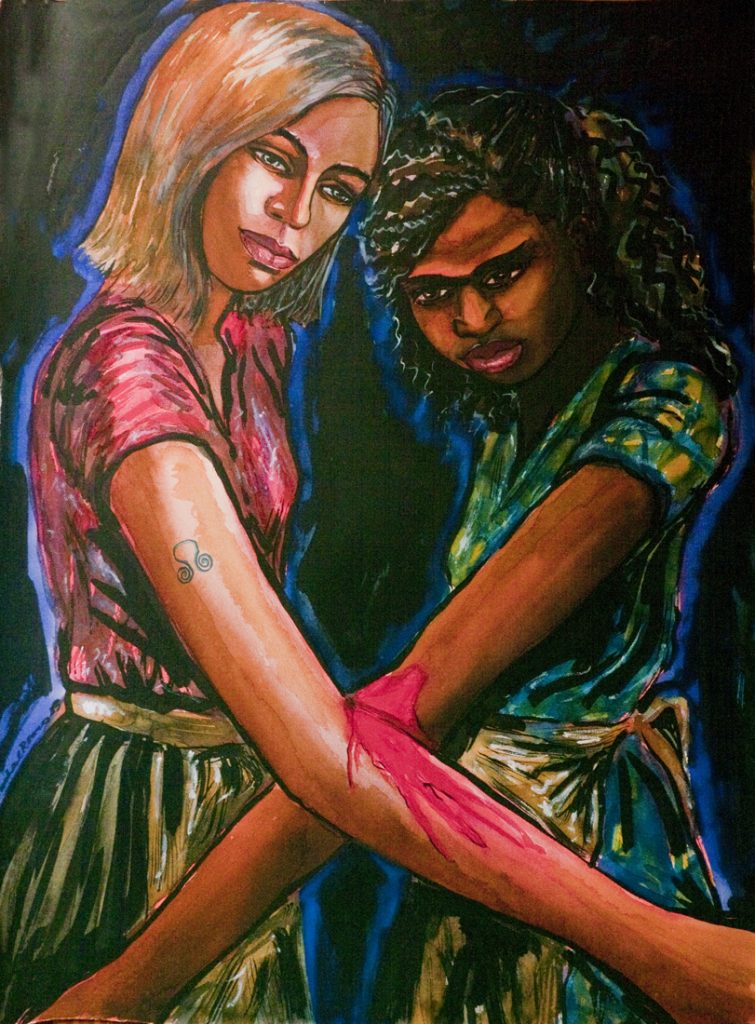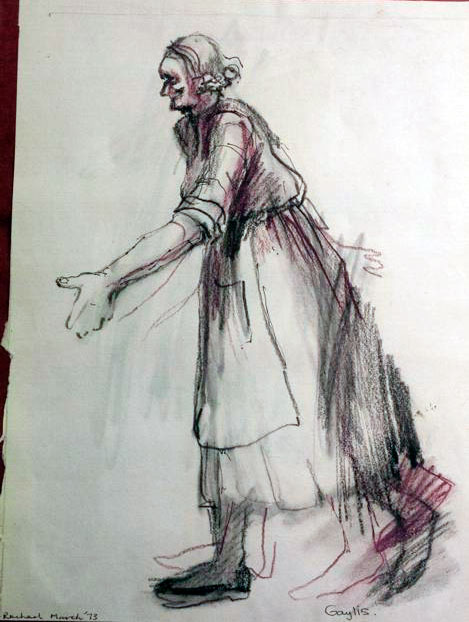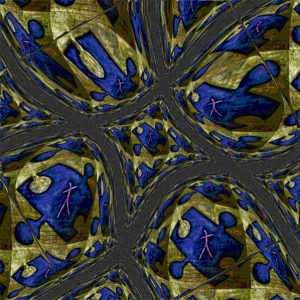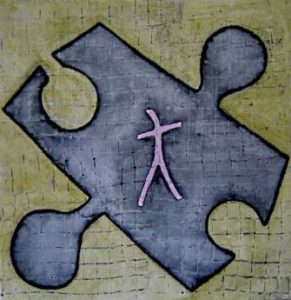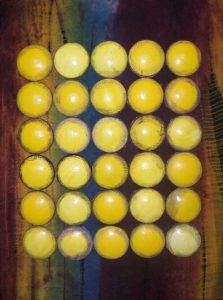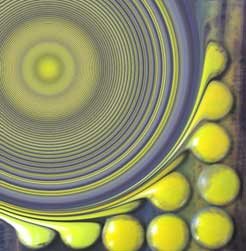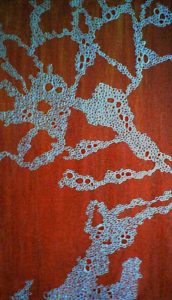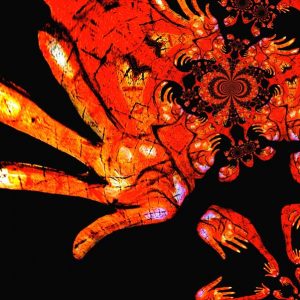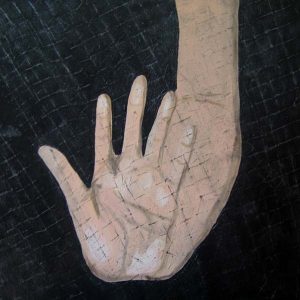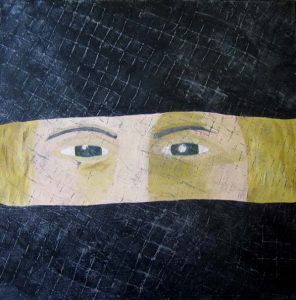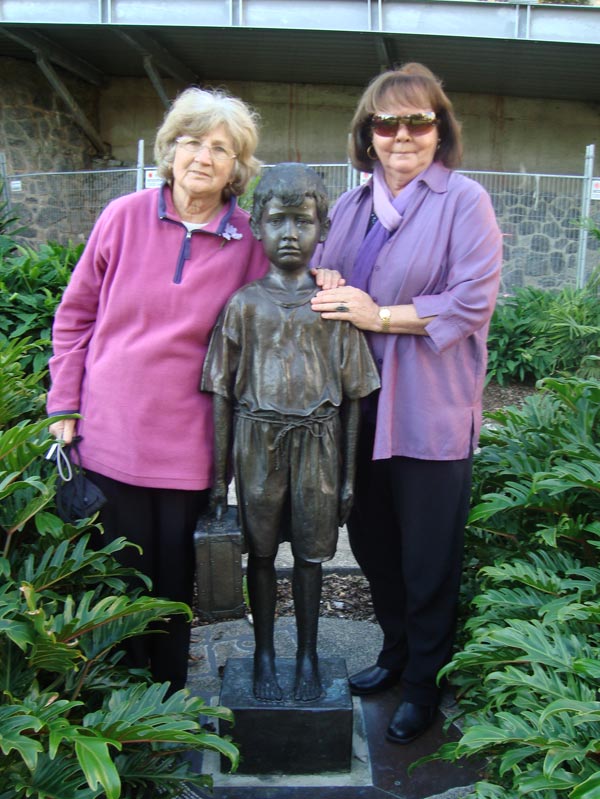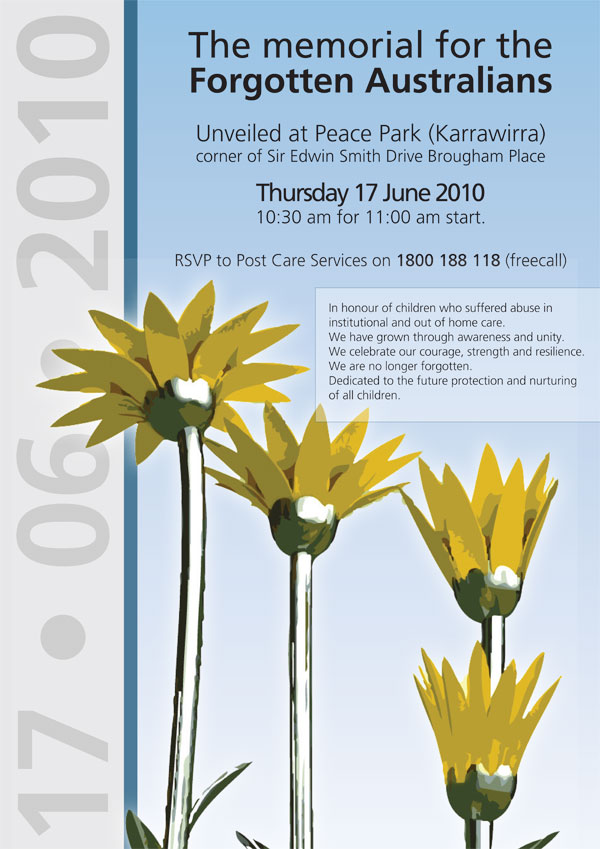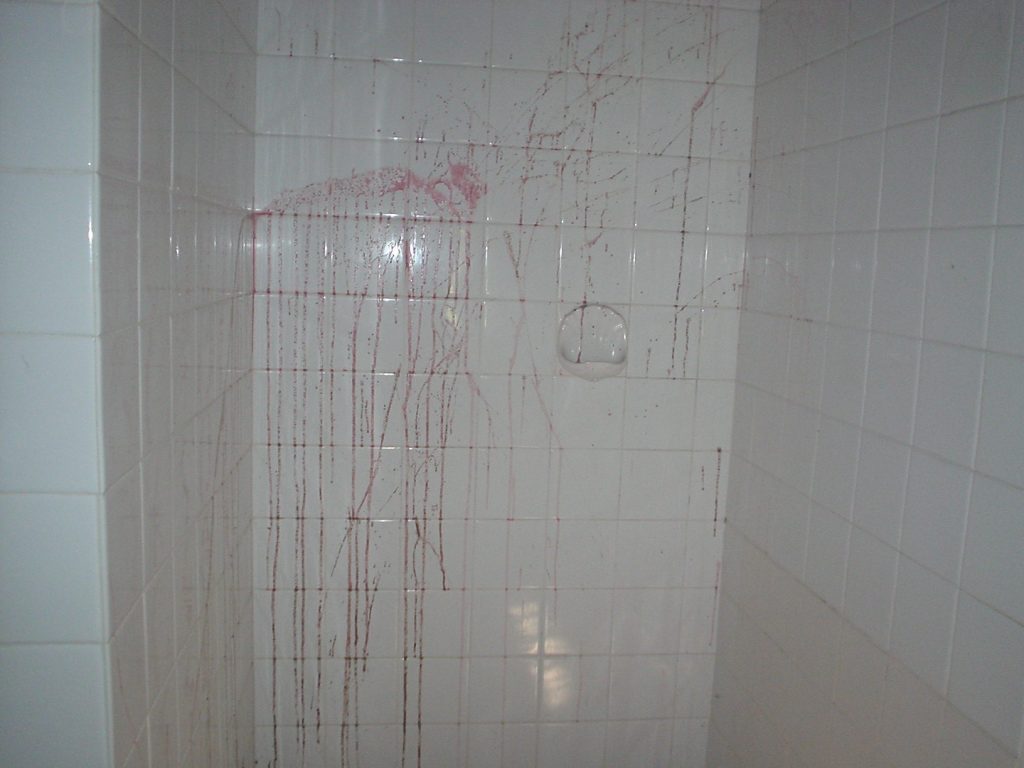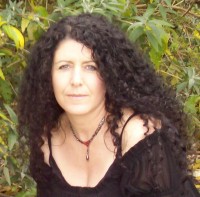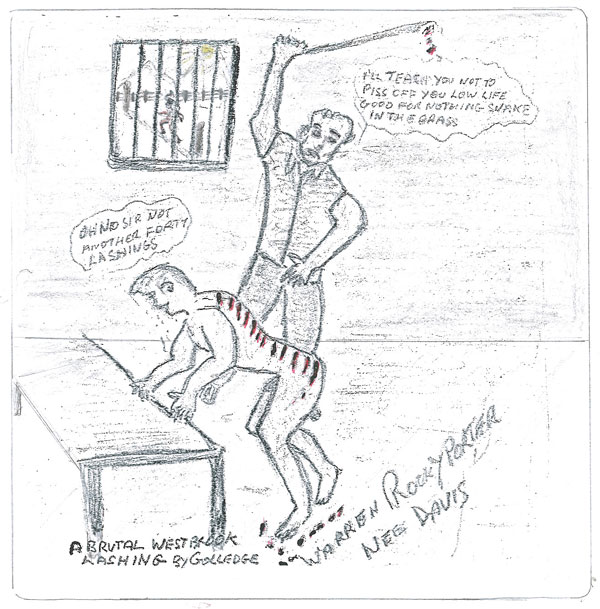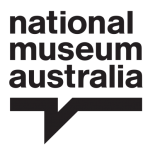by Sue Treweek (guest author) on 10 June, 2010
Sue Treweek was a resident of Abbortsford Convent from 1968 – 1970. At the age of 11, she was sent to Warilda, in Brisbane. She was also a resident of the Bush Children’s Home in 1973 and Nudgee Orphanage from 1978 – 1979, both in Queensland.
For the simple act of rocking herself to sleep, the nuns sent Sue, at the age of 12, to Lowson House, a mental health ward at the Royal Brisbane Hospital. Even though the psychiatric assessment stated that she was not mentally ill, no children’s homes would take her and so she was admitted to Wilson Youth Hospital. She was then transferred to Osler House, from 1980- 1988, the maximum security ward for adult female psychiatric patients at Wolston Park Hospital. A feature-length documentary film is current being made about her life: Scab Girl Asylum.
Sue has founded No-Problem Cleaning Services which provides:
- family lifestyle coaching
- yard clean- up and rubbish removal
- specialised cleaning services
- cooking and nutrition training
- child care/supervision
- office cleaning
Here are Sue’s poems; Remember Them, Those Poor Souls, Out of the Ashes, A Child Cries, Jesus Loves the Little Children, People of the Cloth and Those of Faith Stand Up.
Remember them, those poor souls
Today I sit and wonder what became of them, those poor souls I left behind.
A deep sadness fills my soul.
Their bodies racked by illnesses confusing to some.
Their pain can’t be seen only heard through their cries for help.
The uncertainty to what is real; a deep fear dismissed, no logic found by those in charge.
Still these people feel the pain no rest for them those poor souls.
An act of ignorance papers are signed another poor soul loses their rights.
Abused and dehumanized in the name of therapy their worst fears are realized.
Not knowing any different they settle in to a life of pain and uncertainty no mercy for them those poor souls.
Awake again the daily ritual begins, the turn of a key their here again, who this shift, will they be cruel or kind, showered and dressed wait to eat pills to take before you eat.
The drugs take hold the voices are silent for awhile, reality strikes as for a brief moment they remember what once was their life as the memories flood in, tears well in their eyes as they wonder what is happening to them, and for those who have never known different they wonder why were born not right.
Cruel words spoken sink to their soul those they trust hardest of all, told they are unacceptable till they can bear it no more succumb to the pain you know you must, sent away from societies eyes, stay away you must.
Their silent screams for understanding and acceptance fall on deaf ears only those innocents that watch their suffering yet have no power, hear their screams and remember them.
In dreams and on the wind they hear and understand those poor souls and will never forget.
The turn of a key they’re back again what today when will death come for me.
For some death does come like an angel in the night, swept away on the wings of an angel they feel no more pain.
Accepted now for who they are at peace within no fear, the confusion is gone.
Shame on those trusted to care, forget them not, those poor souls.
Out of the ashes
Out of the ashes we walk alone charred from the flames of a childhood
Spent in care,
Still we live luckier than some, are we.
In shock we wander through life wondering what could have been, had we been dealt a different hand.
Each day a challenge just to stay, still we stand alone,
The beginning of new, for some bring life to our world, a child to love maybe a spouse
Feelings of joy replaced by pain, the battle begins, learn the mistakes of those who had the
power, don’t repeat, or the next generation will walk alone from out of the ashes they to will
stand.
Packaged now, for justice and change, not with out more pain to come for those who speak out,
we watch as one by one our generations fade no justice found; finally, now they listen to those
who walked alone.
United we stand, now our voice is strong and clear, grouped together for effect and support,
some sink deep from the weight of their past others wander in shock yet again, a few move on
and realize their dreams.
The fight renewed society screams out in anger as more with power are exposed, fear have some
who carry their guilt, with the knowledge they failed their duty of care.
To the top they walk together, on common ground that binds them all.
Their voice is loud, all can hear; people with position back them in their fight.
In disbelief they watch society and government react with guilt and remorse
Promises made that have no truth, reports and recommendations gather dust.
Too late for some the changes come rest in peace with the knowledge your fight is over. For those
left behind the fight continues till no other will suffer as they did and history will show that those
who had the courage tasted victory and realized their dreams.
A child cries;
A child of 13 sits waiting to be judged, two sisters of god sit either side.
A woman in white flanked by two men, approach the child, and lead her to hell.
The lift rises from floor to floor the sound of screams shoots fear to her core.
A child cries.
A woman screams for help no one listens the child listens and wants to help.
A naked woman sees the child looking through the small holes into the cell.
Help me child tell someone. The child tells but no mercy to be found for her.
A woman yells as her delusions take hold you child you are the one,
my children are dead, you the devils child you must be punished.
Punched in the head as another patient act’s out her delusions, many more to come, weakest are you.
Confusion sets in.
A child cries.
A woman quenches her thirst; cup of urine in her hand, down it goes no thought of what.
She turns on the child and it starts again more abuse, no escape to be found,
she can’t help it she’s sick is the reply.
The child protests and is punished, labelled, drugged and isolated now she knows she is in hell.
A child cries
Another day passes in hell assessed and processed yet again no illnesses found.
Frustration by all at no illness found labels are many. The child is confused,
words slice deep into the child as her soul dies, fear is overcome by rage.
A child cries
This child learns fast the hell she is in.
Punished for differences that make her stand out told she must change she wonders into what.
Caught again banging her head no harm has she done, remove her pillow see if she stops
Taunted and teased by staff, who must make this child conform it is their job.
A child cries
The child fights to change without knowing into what.
Hides her head banging by rocking side to side with care not to be caught.
Not acceptable was this, manipulative is she
Punished again for inappropriate behaviour and dress, back in the cell.
A child cries
Another Dr out of bed another needle in her leg, Striped naked and left in this cold dark cell,
Drugs take hold to cold to sleep, sat on the floor back to the wall,
rocking front to back the only comfort to be found,
prayed for sleep my only friend or death, either will do.
Awake again in this cold dark hell as the child fights her body’s pain.
Fear of death, her screams are now ignored by those who care.
Her pleas to be let out are dismissed as attention seeking, don’t listen or it could reinforce,
teach her a lesson, more time for her in that cold hard hell.
Pain shoots through her body as she holds in the wee, mustn’t have an accident no toilet to use.
A puddle in the corner sometimes more to be punished for, shame, shame on you, you dirty girl.
Judgement is made out of ignorance and frustration, trapped in hell.
A child cries as her childhood dies.
Jesus loves the little children
A child sits cold and terrified by those charged to care
No thought of the future the child will conform
Break its spirit destroy its faith make it take the pain
It cries for mercy none to be found
Abused and left in that cold hard cell, their guilt is hidden deep in their souls
Mistakes are many the child waits, and rebels the pain enforced
By those charged to care, in the depths of hell the child remembers the song once heard which comforted her before.
A deep breath the pain subdued, as the child remembers the words through her drugged state,
they tell her to shut up and stop those words she struggles to stand as they knock her down again,
still she sings that song from deep inside her soul, the words strike hard the consciences of them all,
in their sleep they can’t escape, these words haunt them and always will as they remember the child they continued to abuse in that cold dark hell
Her only weapon the verse of a song called Jesus loves the little children; all the children of the world, red and yellow black and white, all are precious in his sight.
Fury spurred by their guilt, they attack the child no thought for her,
Shut her up she must not sing, this song is an attack we must, stop, how dare she sing this song.
The despair is relieved by the words she sings, her pain is comforted by the one she can’t see, but sing his name, louder now for all to hear
She gathers strength from the words she sings, with the knowledge she is loved by one who cares.
With her faith she takes it all, sometimes wondering if she will finally die and meet her friend, the one who stood by her side through all the pain and suffering, he was there,
He sacrificed his life to save our souls, now he stands beside this child,
She feels his presence in that cell, fear subsides, she is not alone.
Til the next wave of pain in the name of therapy and discipline, is enforced upon the child, til
she can take no more, again Jesus stands by her side and shares her pain.
The lord watches the struggle, as the child fights to hold on to her faith,
The lord steps in and takes her soul, wraps it in his arms protect it he can, what’s left will survive or join her soul.
Grown now is the child, survived the past her soul intact, an act of mercy from the lord he saved her soul, only now she sees the truth and knows she must never forget.
The love of the lord out lives it all.
What’s left of shattered dreams
As a child we dream of years to come with innocence and a sense we can.
An astronaut will I be, a doctor, nurse, teacher, I’ll climb the highest mountains.
Or a general in charge of a war
Or a ballerina a great dancer or maybe a mother that cares
All to soon we learn we can’t, as our dreams are stripped from us one by one,
Left with what could have been if dealt a different lot.
Trying to dream the child has forgotten how,
What a shame is what we hear, that child could have been.
The ones who lived there dreams are now the ones who destroy,
Feeding on the child as does the ravenous beast to its prey,
As dignity and innocence are replaced by fear and humility,
The child learns from those told to care, how worthless they truly are
As they endure the horrors dealt out to them their soul shudders at more to come and their dreams turn into nightmares relived day after day
No harm done the child will forget, we will rehabilitate it
As they rehabilitate what they cannot see and fear to be to be true.
More dreams die, till soon the child fears to dream and is lost,
As those who have the power wonder why.
The child grows and wonders what could have been.
Now an adult their dreams are new but tainted by the child within.
They dream of simple things now, like getting through one more day.
Nothing soothes there soul as they prey for death their only friend.
Some did not give in, they still struggle to dream, only now there dreams are of a better life, a life of peace and fullness they have never known,
They refuse to give in fighting for their lives they believe they can.
To their graves they take there dreams some never knowing how close they came.
Forgotten by those who stole their dreams, passed of as a mistake made so many years before by those told to care
No remorse for the devastation caused.
PEOPLE OF THE CLOTH
Care for those unfortunate kids, sent to you with no place to call home
Treat them well for judgment day will come for you all
The lord watches on as you do your best to uphold his word
Remember well he sees it all
As he watches the evil take hold of his people as they hide behind his name, they turn away from him and act out their evil on those defenseless souls,
Not a thought for judgment day.
The children sent to his house, betrayed and abused they stand in line,
Jesus came he loves them all his sacrifice was for them,
The lord his son by his side, watches as more souls are damaged by his people.
They are turned by evil yet preach his name
They use his name to justify their evil, first to the children then their peers,
All listen to them powerful are they.
The lord is saddened by the pain of his children, he watches and remembers them.
Those who came to him for sanctuary, now turn away thinking he has forgotten them
They can not see the sadness in his soul.
He sends a message only headed by some, those of the cloth fear me now for your judgment day will come, no mercy will I have, on those who abused my children from
behind the cloth.
People of the cloth chosen by him, to care for the children, our future cloth,
Those, whose faith is strong, separate the lord from the evil ones,
They stand by their faith to the end and the lord welcomes them
His arms open, they are home.
One by one the evil ones draw close to their end.
The lord waits with his son by his side, to pass judgment on them
As the day draws closer panic sets in, no more can they hide behind the cloth
The time has come for those of the cloth, to answer for their sins.
Brutal is the lord on those of the cloth, they betrayed him from within.
THOSE OF FAITH STAND UP
Unite as one within his sight.
Send a message to all who have faith to join as one, unite your souls to right the wrongs and embrace a future free of shattered children.
Welcome home his lost souls those who suffered a childhood shattered by those of twisted faith.
Only then can future generations of our faith be freed from those who betrayed the lord from within, cleanse his house renew the faith and trust lost by so many.
Heal the wounds of past injustices embrace the children past present and future, make a difference their will be no more evil within his house , gather strength from those who suffered in his house for only they hold the key and know the way, it is within they must see.
Remain united till the end the lord will see and join the fight together we will rejoice cleansing the cancer which threatens our faith.
The sky will open the earth renewed from his tears of joy
Remember well the lord sees it all.

